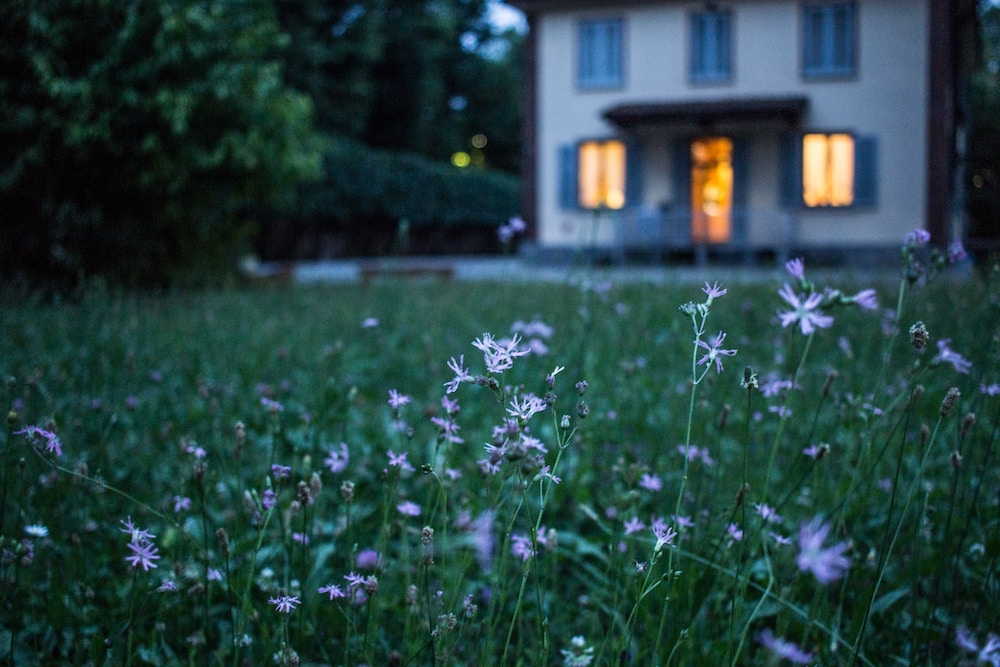interviews
The Many Faces of the Palestinian Diaspora
Hala Alyan on the scents, sounds, and landscapes that helped her capture a family and a diaspora

Leaving your home country, especially by force, is a trauma that continues to reverberate long after the boundaryline is crossed. I often think of what Salman Rushdie wrote in The Satanic Verses: “Exile is a dream of a glorious return…It is an endless paradox: looking forward by always looking back. The exile is a ball hurled high into the air.” It is this motion of exile, the duality of being forced forward and back, that Hala Alyan — the poet, clinical psychologist, and now novelist — explores in her new book, Salt Houses.
The novel begins when Salma reads her daughter Alia’s future in a cup of coffee on the eve of her wedding. The grounds foretell the family’s unsettled life, and shortly thereafter the Six-Day War (also known as the War of 1967, among other names) forces them from home. The story follows the effects of this event across generations of the same family as they’re dispersed around the world.
The Palestinian diaspora is one of the major movements of people in history, and yet it’s largely underrepresented in literature. I had the opportunity to discuss the challenges of capturing that diaspora on the page, plus what it’s like to be a published poet writing her first novel, and more, with Alyan over email.
Carrie Mullins: Salt Houses takes on the situation of the Palestinian diaspora generally, but you also bring it down to the scale of one family. How did you decide to weave together so many generational strands?
Hala Alyan: I honestly think it was more a matter of curiosity than anything else. The initial idea was a short story; clearly that got a little out of hand! I found myself so interested (and curious) in the lives of the character’s mother and sister, and couldn’t resist trying to write from their perspectives. Pretty soon I realized that was the most satisfying way to tell this family’s story, both in terms of scope and remaining invested in the writing process.
CM: Diaspora is literally “the dispersion of any people from their original homeland” but obviously that fails to capture the complexity, the heartache, and the often involuntary nature of the situation — something that Salt Houses tries to remedy. I’m interested in how you see the intersection of literature and politics, especially the benefits and risks of addressing historical or current events in a fictional way.
HA: I think literature can play a powerful role in emotionally translating political events, allowing people to connect to the individuals and families behind history. One of the clear benefits is magnifying underheard and underwitnessed narratives and stories. The risk that accompanies any fictionalizing of a story that is based in actual historical and political events is that it will never be representative of the experiences of, say, all Palestinians who lived through those events. That’s why, in writing this book, I committed to the idea of doing justice to a single family, with a particular socioeconomic and diasporic background, nothing more, nothing less.
I committed to the idea of doing justice to a single family, with a particular socioeconomic and diasporic background, nothing more, nothing less.
CM: Speaking of the political, I was interested in the way that memory can be political for these characters. They’re haunted by what they’ve lost, but idealize it too, even generations who are further and further removed. That feels very relevant to the world today.
HA: Absolutely. Memory isn’t created in a vacuum, and history is made and remade through the generations. We are left with the legacy of our ancestors’ memories, and it becomes a malleable thing, a way of honoring and preserving and, in some cases, reconceptualizing history. That always comes with the risk of idealizing, which can in a way become an erasure of its own.
Carrie Mullins: You’ve published three books of poetry. What was it like to turn a poet’s eye to a much longer narrative?
Hala Alyan: It was such a relief in some ways. Poetry taught me to pay attention — to landscape, to dialogue, to emotion. That carried over nicely to prose, particularly because I realized pretty quickly how hungry I was to really delve into a longer piece of work. In many ways, I could trick myself into thinking that I was really just working on thousands of little poems, taking it a sentence at a time.
I could trick myself into thinking that I was really just working on thousands of little poems, taking it a sentence at a time.
CM: Because the characters in the book move around a lot, from Kuwait to Boston to Paris, the setting is always changing. It’s a challenge for any writer to get one setting “right”, and you’ve set yourself the task of many. How did you make each one come alive? Was there a process that you went through to make each one its own authentic, delineated space?
HA: I tried to stay away from settings that I wasn’t at least somewhat familiar with, to remain as faithful as possible to scents, landscape, sounds — what I think of as the personality of a city. I looked at old photographs, listened to old music. I asked people to describe their cities in their own words. But more than anything, I just walked. It’s my favorite thing to do in a new place — walk and daydream.
CM: Are there other books, whether fiction, poems, or non-fiction, that you’d recommend for people who want to read more about the Palestinian diaspora?
HA: Absolutely. People should check out poets like Mahmoud Darwish, Fady Joudah, and Suheir Hammad. As for more contemporary fiction, I love Randa Jarrar and Susan Abulhawa’s work.









